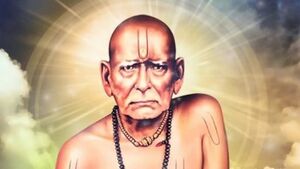Talk:How Great People Die
By Vishal Agarwal
Ramana Maharshi merges with the Infinite upon his Death (1950 CE):
In 1947 Ramana Maharshi’s health began to fail. When the doctors suggested amputating his arm above a cancerous tumor, Ramana replied with a smile:
"There is no need for alarm. The body is itself a disease. Let it have its natural end. Why mutilate it? A simple dressing on the affected part will do."
Two more operations had to be performed, but the tumor appeared again. Indigenous systems of medicine were tried, and homeopathy too, but the disease did not yield to treatment. Maharshi, supremely indifferent to suffering, was quite unconcerned. He sat as a spectator watching the disease waste the body; his eyes shone as bright as ever, and his grace flowed toward all beings. Ramana insisted that the crowds who came in large numbers should be allowed to have his darshan…..The devotees profoundly wished that the sage would cure his body by using the supernormal powers. Ramana had compassion for those who grieved over the suffering, and he sought to comfort them by reminding them of the truth that Bhagavan was not the body:
They take the body of Bhagavan and attribute suffering to him. What a pity! They are despondent that Bhagavan is going to leave them and go away, but where can he go and how?
The end came on April 14, 1950. That evening the sage gave darshan to all the devotees in the ashram. They started singing Ramana’s hymn to Arunachala, the name of the holy mountain the sage so loved. He asked his attendants to help him sit up and opened his luminous eyes and gracious eyes for a brief while. There was a smile, a tear of bliss trickled down the outer corner of one of his eyes, and at 8:47 PM, his breathing stopped. At that very moment, a comet moved slowly across the sky, passed over the summit of the holy hill, Arunachala, and disappeared behind it.”[1]
The Departure of Akkalkot Swami:
The following is the death scene of a Akkalkot Swami Samarth(d. 1878):
“Then Akkalkot Swami sent for his favorite barber and had a clean shave and bath. Although he hadn’t taken food in a week, he looked quite cheerful. He greeted each of those around him with a solicitous look and inquired as to their welfare. Then, seated in the lotus position, he spoke his last words: “No one should weep – I shall be always present at all places. I shall respond to every call of the devotees.” With these words, his eyes closed. The peace and radiance on his face increased, and three white sparks flashed from his mouth. Devotees thronged to the banyan tree [his favorite place] and a mammoth procession assembled and went around the city in regal splendor……”[2]
For spiritually enlightened individuals, death is not something to be feared because it is the gate leading to immortality.

